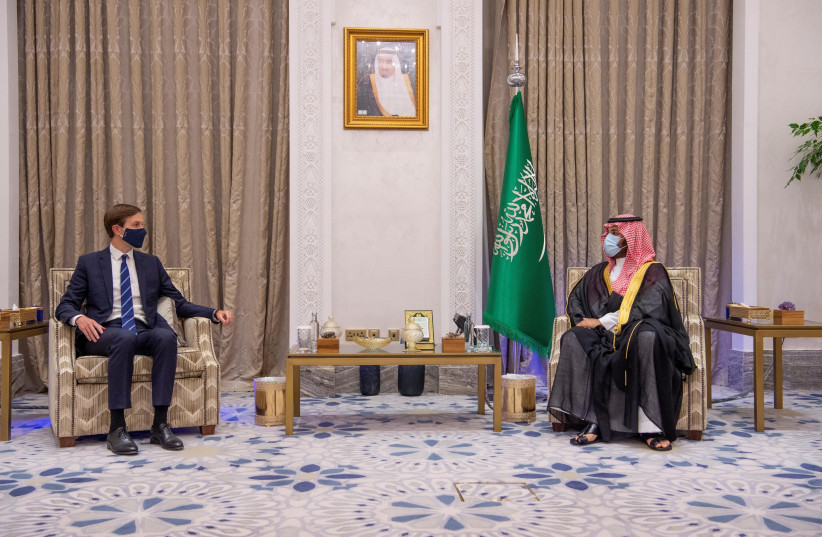A US House of Representatives committee said on Thursday that it was investigating the Saudi Arabian government's $2 billion investment with a firm of Jared Kushner, the son-in-law of former President Donald Trump.
"The Committee on Oversight and Reform is investigating whether you (Kushner) have improperly traded on your government position to obtain billions of dollars from the Saudi government and whether your personal financial interests improperly influenced US foreign policy during the administration of your father-in-law, former President Trump," Representative Carolyn Maloney, the New York Democrat who leads the House Committee on Oversight and Reform, said on Thursday in a letter.
Maloney sent the letter to Kushner, who served as a White House adviser to Trump, requesting documents on the investment in his firm, A Fin Management LLC (Affinity).
A spokesman for Kushner told the New York Times that he "abided by all legal and ethical guidelines both during and after his government service." The firm did not immediately respond to a Reuters request for comment on Thursday.
Records showed that the firm is registered as an investment adviser with about $2.5 billion under management in pooled investment vehicles.

In a typical private equity investment, Saudi Arabia would have put money into a fund managed by A Fin, rather than investing in the firm itself. The details of this investment were not known.
"Your support for Saudi interests was unwavering, even as Congress and the rest of the world closely scrutinized the country’s human rights abuses in Yemen, the murder of journalist Jamal Khashoggi by Saudi assassins tied to Crown Prince Mohammed bin Salman, and Saudi Arabia’s crackdown on political dissidents at home," Maloney wrote in the letter.
Kushner incorporated the firm after Trump left office and it secured the $2 billion investment from Saudi Arabia six months later, Maloney added.
Abraham Accords and conflicts of interest
Kushner was heavily involved in the development of the 2020 Abraham Accords, which brought a normalization of ties between Israel and several former adversaries in the region – and thus unprecedented cooperation between Israel and countries such as the UAE, Bahrain and Morocco.
Kushner and the Trump administration further courted Saudi Arabia, who eventually agreed to open its airspace to flights between Israel and the United Arab Emirates.
After leaving his role at the White House following Joe Biden's election win, Kushner established his firm and eventually landed the Saudi investment, millions of which Kushner intends to invest in Israeli start-ups, the Wall Street Journal reported in early May.
In April, however, The New York Times reported that a panel that screens investments for the Saudi Public Investment Fund expressed concerns about the intent to invest $2 billion in Affinity Partners, citing "'the inexperience of the Affinity Fund management'; the possibility that the kingdom would be responsible for 'the bulk of the investment and risk'; due diligence on the fledgling firm’s operations that found them 'unsatisfactory in all aspects'; a proposed asset management fee that 'seems excessive'; and 'public relations risks'" from Kushner’s prior role as a senior adviser to former US President Donald Trump.
